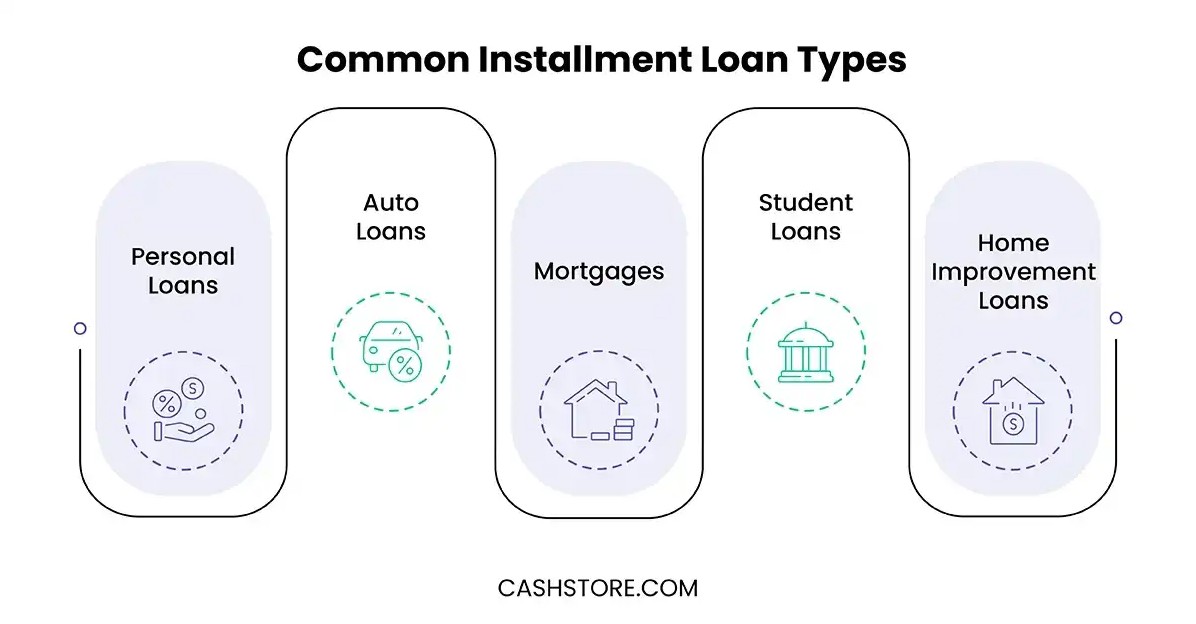Fast Cash or Cash Loans: A Comparison for Smart Borrowers
Wiki Article
The Ins and Outs of Loans: Browsing Your Financing Options With Self-confidence
Maneuvering the complicated landscape of loans requires a clear understanding of various types and essential terminology. Several individuals find themselves bewildered by alternatives such as personal, automobile, and student loans, in addition to essential ideas like rates of interest and APR. An understanding of these basics not only aids in evaluating monetary requirements but additionally enhances the loan application experience. There are considerable variables and typical risks that customers need to recognize before proceeding better.Understanding Different Kinds Of Loans
Loans act as important financial devices that accommodate different demands and objectives. Businesses and individuals can select from several sorts of loans, each made to fulfill particular demands. Individual loans, typically unsecured, provide debtors with funds for various individual expenditures, while car loans allow the acquisition of automobiles through protected funding.Home loans, or home mortgages, help customers in obtaining property, usually including lengthy repayment terms and specific rate of interest. Trainee loans, focused on funding education, often included reduced rate of interest and credit choices up until after college graduation.
For companies, business loans provide essential capital for development, devices acquisitions, or operational prices. In addition, cash advance loans offer fast cash money solutions for urgent requirements, albeit with greater passion rates. Recognizing the different sorts of loans allows debtors to make educated decisions that straighten with their economic goals and conditions.
Key Terms and Principles You Need To Know
When steering loans, understanding key terms and concepts is necessary. Rate of interest play an essential role in identifying the expense of borrowing, while various loan kinds satisfy various financial needs. Experience with these aspects can equip individuals to make educated choices.Rates Of Interest Explained
Just how do rates of interest effect borrowing decisions? Rates of interest represent the expense of obtaining money and are an essential factor in financial decision-making. A higher passion price boosts the overall cost of a loan, making borrowing less appealing, while reduced rates can incentivize debtors to tackle financial debt. Lenders use rates of interest to reduce risk, mirroring debtors' credit reliability and dominating financial problems - Fast Cash. Fixed rates of interest continue to be continuous throughout the loan term, supplying predictability, whereas variable prices can vary, potentially resulting in higher settlements with time. In addition, understanding the yearly percent price (APR) is important, as it includes not simply passion but additionally any connected fees, providing a thorough sight of borrowing expensesLoan Types Introduction
Maneuvering the landscape of loan types is crucial for debtors seeking one of the most ideal financing options. Understanding various loan types aids people make informed decisions. Individual loans are commonly unprotected, suitable for combining debt or financing personal tasks. Mortgages, on the other hand, are protected loans especially for purchasing realty. Automobile loans serve a comparable function, funding automobile acquisitions with the vehicle as collateral. Business loans accommodate entrepreneurs needing capital for operations or expansion. Another choice, pupil loans, assist in covering academic expenditures, typically with beneficial settlement terms. Each loan type presents unique terms, rate of interest prices, and eligibility requirements, making it essential for consumers to assess their monetary needs and capacities before devoting.The Loan Application Process Discussed
What steps must one take to effectively navigate the loan application procedure? Initially, people need to examine their economic demands and determine the kind of loan that lines up with those needs. Next, they should assess their credit rating report to confirm precision and determine locations for improvement, as this can affect loan terms.Following this, borrowers should gather needed documents, consisting of proof of earnings, employment history, and monetary statements. As soon as prepared, they can approach lending institutions to make inquiries about loan items and rates of interest.
After choosing a loan provider, completing the application properly is necessary, as omissions or errors can delay handling.
Finally, applicants should be all set for prospective follow-up requests from the lending institution, such as additional documentation or clarification. By adhering to these steps, individuals can boost their chances of a effective and smooth loan application experience.
Factors That Influence Your Loan Approval
When considering loan approval, several critical variables enter into play. Two of the most significant are the credit history and the debt-to-income ratio, both of which provide lenders with insight right into the debtor's monetary security. Understanding these components can substantially boost a candidate's possibilities of protecting the wanted financing.Credit Score Significance
A credit score acts as an important criteria in the loan approval procedure, affecting lenders' understandings of a consumer's financial integrity. Commonly varying from 300 to 850, a higher rating shows a history of responsible credit rating usage, including timely payments and low credit utilization. Various elements add to this rating, such as settlement history, length of debt background, kinds of credit rating accounts, and recent credit history questions. Lenders utilize these ratings to assess risk, identifying loan terms, rates of interest, and the possibility of default. A strong credit rating not only enhances authorization chances yet can additionally result in more beneficial loan problems. Alternatively, a reduced rating might lead to higher rate of interest prices or rejection of the loan application completely.Debt-to-Income Proportion
Many lenders consider the debt-to-income (DTI) ratio an important element of the loan approval process. This monetary statistics compares an individual's month-to-month financial debt settlements to their gross monthly revenue, offering understanding into their capacity to manage extra financial obligation. A reduced DTI proportion indicates a much healthier monetary scenario, making consumers extra eye-catching to loan providers. Aspects affecting the DTI ratio include housing expenses, credit scores card equilibriums, pupil loans, and other persisting costs. Additionally, changes in revenue, such as promotions or job loss, can greatly affect DTI. Lenders typically like a DTI proportion below 43%, although this threshold can differ. Understanding and managing one's DTI can enhance the chances of securing desirable loan terms and interest rates.Tips for Managing Your Loan Sensibly

Typical Mistakes to Avoid When Getting a Loan

Additionally, lots of individuals rush to approve the initial loan offer without contrasting alternatives. This can cause missed chances for far better terms or lower rates. Borrowers must also avoid taking on loans for unnecessary costs, as this can lead to long-lasting debt troubles. Ultimately, neglecting to assess their credit history can impede their capability to safeguard favorable loan terms. By knowing these risks, borrowers can make educated choices and navigate the loan procedure with better confidence.
Frequently Asked Inquiries
How Can I Improve My Credit Score Prior To Making An Application For a Loan?
To enhance a credit score prior to making an application for a loan, one must pay expenses promptly, decrease outstanding financial obligations, examine credit history reports for mistakes, and stay clear of opening new charge account. Regular monetary routines produce favorable results.What Should I Do if My Loan Application Is Rejected?

Are There Any Type Of Fees Connected With Loan Prepayment?
Loan early repayment costs may use, depending on the lending institution and loan type. Some loans include charges for early payment, while others do not. It is necessary for consumers to assess their loan arrangement for details terms.Can I Negotiate Loan Terms With My Lender?
Yes, customers can work out loan terms with their loan providers. Elements like credit rating, settlement background, and market conditions may affect the loan provider's determination to modify rates of interest, more info repayment schedules, or fees related to the loan.Just How Do Rates Of Interest Impact My Loan Repayments Gradually?
Rates of interest significantly influence loan payments. Greater prices lead to boosted month-to-month payments and total interest expenses, whereas lower rates reduce these expenditures, inevitably influencing the consumer's overall financial problem throughout the loan's duration.
Many people discover themselves overwhelmed by options such as personal, auto, and student loans, as well as crucial concepts like interest rates and APR. Rate of interest rates play an important function in identifying the cost of loaning, while different loan kinds provide to different monetary demands. A higher interest rate increases the total price of a loan, making loaning less appealing, while lower rates can incentivize consumers to take on debt. Taken care of interest rates remain consistent throughout the loan term, providing predictability, whereas variable rates can rise and fall, potentially leading to higher payments over time. Financing prepayment charges may use, depending on the lending institution and loan kind.
Report this wiki page